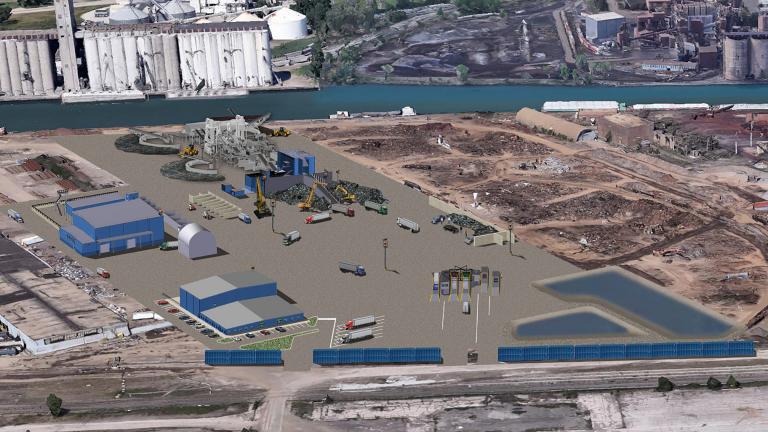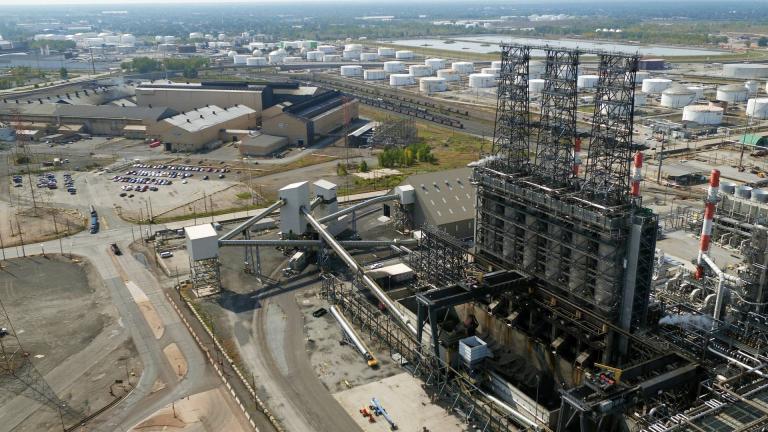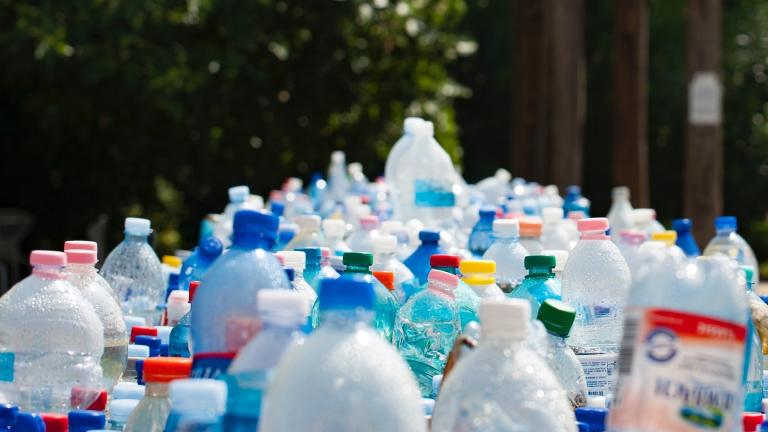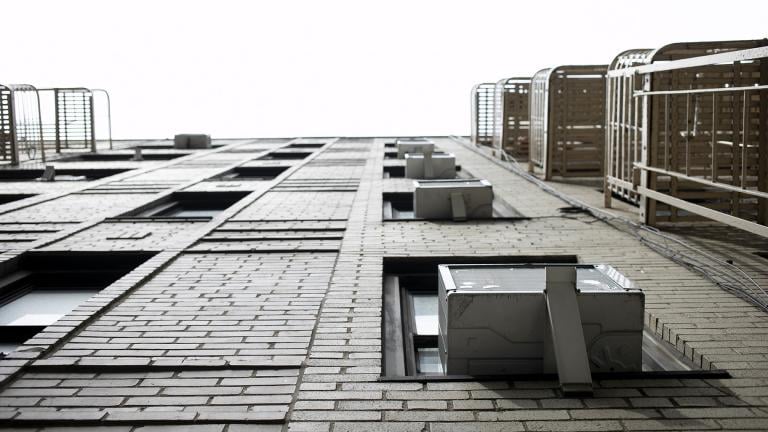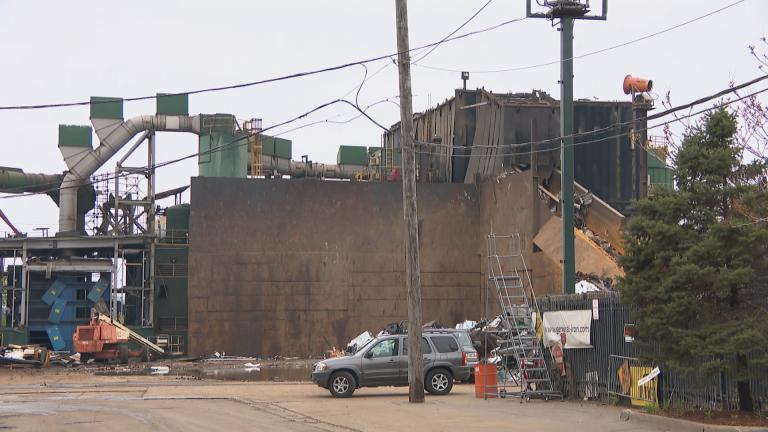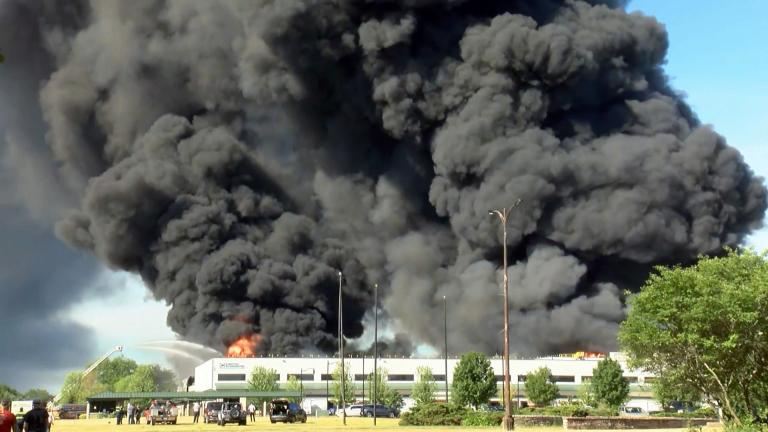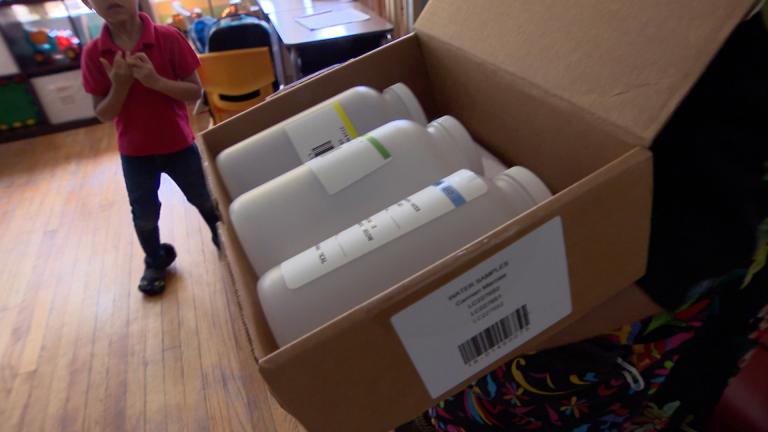A judge’s ruling could force Chicago officials to issue the final permit sought by the parent company of General Iron to operate a metal shredding and recycling operation on Chicago’s Southeast Side.
EPA
Chicago could lose of hundreds of millions of dollars in grants from the U.S. Department of Housing and Urban Development if it does not resolve federal officials’ concerns over a metal shredding and recycling operation.
Officials with the Chicago Department of Public Health rejected the permit because of the “potential adverse changes in air quality and quality of life that would be caused by operations, and health vulnerabilities in the surrounding communities.”
City officials said they would announce no later than Sunday whether they will issue the final permit Southside Recycling needs to start operations.
The U.S. District Court settlement modifies a previous consent decree that required BP Products North America Inc. to limit releases from the sprawling facility on the southwestern shore of Lake Michigan.
On Monday, the Environmental Protection Agency released its first National Recycling Strategy, which aims for a 50% recycling rate in the U.S. by 2030.
Michael Regan, the head of the Environmental Protection Agency, said his agency is taking a series of actions to limit pollution from a cluster of long-lasting chemicals known as PFAS that are increasingly turning up in public drinking water systems, private wells and even food.
The Environmental Protection Agency confirmed the “reddish-orange discharge” that poured into Lake Michigan on Sunday from a steel plant in Portage, Indiana, was caused by high levels of iron, and says there’s no indication of health risks for people who may come into direct contact with the water.
U.S. Steel is reporting that a “rusty colored” discharge that poured into Lake Michigan on Sunday from its plant in Portage, Indiana, was due to elevated iron levels.
In what officials call a key step to combat climate change, the Environmental Protection Agency is sharply limiting domestic production and use of hydrofluorocarbons, highly potent greenhouse gases commonly used in refrigerators and air conditioners.
The parent company of a now-shuttered metal recycler on the North Side will pay a fine as part of an agreement to resolve charges that the firm’s operation violated the Clean Air Act, Environmental Protection Agency officials announced Wednesday.
The parent company of General Iron, which wants to operate a metal shredding and recycling operation on Chicago’s Southeast Side, failed to notify city officials that a vacant building collapsed on the site of the proposed facility, officials said Thursday.
The city is conducting additional environmental studies after the head of the Environmental Protection Agency said the proposal raises “significant civil rights concerns.”
A federal judge will not force the city to permit Reserve Management Group, the parent company of General Iron, to operate a metal shredding and recycling operation on Chicago’s Southeast Side.
An explosion at a northern Illinois chemical plant Monday morning sparked massive fires that sent flames and huge plumes of thick black smoke high into the air and debris raining onto the ground, prompting evacuations.
The city has yet to replace a single lead service line in the eight months that have elapsed since Mayor Lori Lightfoot rolled out her plan, officials acknowledged.

